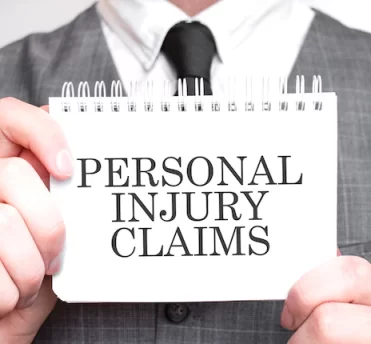Secure Compensation

28 September, 2023 4 Minutes Read
Accidents and mishaps can happen to anyone, anywhere. When someone gets hurt because of someone else's carelessness, it's not just about the physical pain. It's about justice, accountability, and ensuring the injured party gets the support they need to recover. This is the realm of personal injury. But the big question is, can every personal injury guarantee compensation? Explore this article to understand better. Understanding Personal Injury Personal injury revolves around harm that has befallen someone, not due to their own doing, but because of another's oversight or deliberate actions. Think of it like this: if someone was walking down a street and a car suddenly veered onto the pavement and hit them, that person would likely have grounds for a personal injury claim. Firms like Turner Freeman Lawyers often handle such cases, helping individuals understand their rights and navigate the legal landscape.However, personal injury isn't just restricted to accidents on roads. Imagine someone visiting a local store and slipping on a wet floor because there wasn't a caution sign. That, too, could be grounds for a claim. Even scenarios where someone faces trauma after witnessing a harrowing event can be included under this umbrella. Physical Injuries And CompensationBroken Bones and Cuts: When most people consider personal injury, they visualize evident physical damages like broken bones or gashes. These types of injuries are often backed by clear medical records. Such clarity can make it easier to pin down responsibility and ascertain compensation when another party is found at fault.Soft Tissue Injuries: These injuries might not appear on an X-ray but can be just as debilitating. Sprains, strains, and other damages to muscles, tendons, or ligaments fall into this category. Though they might not always manifest immediate symptoms, they can lead to prolonged pain and discomfort. Proper medical assessment is crucial to validate these injuries and to potentially lay a foundation for a compensation claim.Burns and Scalds: Burn injuries can occur in various situations – from workplace mishaps to accidents at home. The severity of a burn, ranging from a minor first-degree burn to severe third-degree burns, often determines the potential for compensation. Such injuries can lead to lasting scars and, in some cases, functional limitations, making them significant in personal injury claims.Traumatic Brain Injuries: Injuries to the brain can be life-altering. They might result from falls, vehicle accidents, or even seemingly minor bumps to the head. The impact of these injuries can vary, from short-term symptoms to lifelong disabilities. Due to the profound implications they can have on one's quality of life, brain injuries are taken seriously when discussing compensation. Factors That Influence Compensation Severity of the Injury: The graver the harm, the more compensation one might expect. For instance, a tiny scratch won't yield the same result as a serious back injury.Fault: Who was responsible for the injury plays a significant role. If both parties share the blame, compensation may be reduced.Evidence: Having strong proof, like photos of the injury or the accident scene, can make a significant difference in a claim. Witness testimonies or CCTV footage can also be crucial.Duration of Recovery: If an injury takes a long time to heal, it can lead to higher medical bills and longer periods of missed work. This can affect the compensation amount.Economic Impact: If an injury prevents someone from returning to work, either temporarily or permanently, it can have a substantial economic impact. Lost wages and potential future earnings will be considered.Medical Expenses: The amount spent on medical treatment, from immediate care to ongoing therapy, will influence the compensation. Keeping a detailed record of all medical expenses is crucial.Non-Economic Damages: Apart from tangible costs, there are intangible ones like pain and suffering, which can be harder to quantify but are considered in compensation claims. Seeking Help For Compensation Securing compensation for personal injuries isn't always straightforward. While the facts might seem clear to the injured party, the legal process can be winding and challenging to navigate. That's where professional assistance comes into play. Guidance On Steps To Take: After an injury, knowing the right steps to take can be overwhelming. Consulting a specialist clarifies the necessary actions, from gathering evidence to speaking with relevant parties. Understanding Rights: Every individual has rights when it comes to personal injury. Professionals like Turner Freeman Lawyers can help clarify these rights, ensuring that one doesn't miss out on potential compensation simply due to a lack of awareness. Avoiding Common Mistakes: There are common pitfalls many fall into when trying to secure compensation. For instance, waiting too long to file a claim can hinder one's chances. With expert advice, these mistakes can be easily avoided. Representation: Sometimes, the best way to handle a compensation claim is through legal representation. A specialist can advocate on one's behalf, negotiating with insurance companies and other parties to ensure a fair outcome. Conclusion To answer the question, "Can all personal injury types secure compensation?" – the answer is nuanced. While many personal injuries can lead to compensation, factors such as the severity of the injury, the fault, and the evidence play crucial roles. Not all injuries guarantee compensation, but understanding the basics can help one navigate the complexities of personal injury claims.Additional:7 Key Legal Areas Every Business Owner Needs To Understand How to Start a Food Truck Business in 2021 – A Complete Guide









